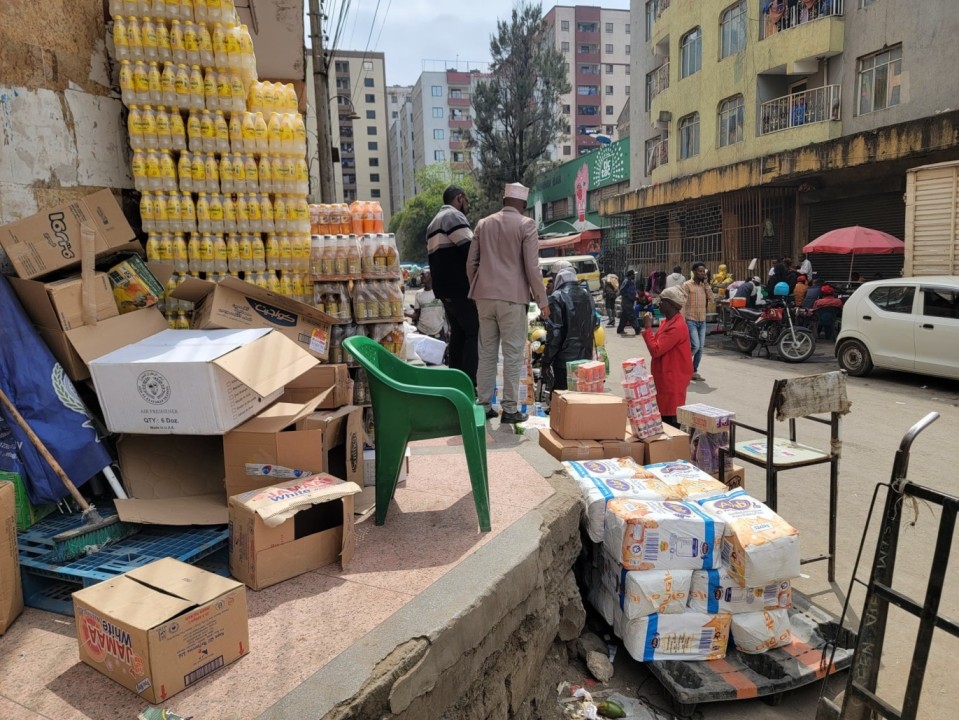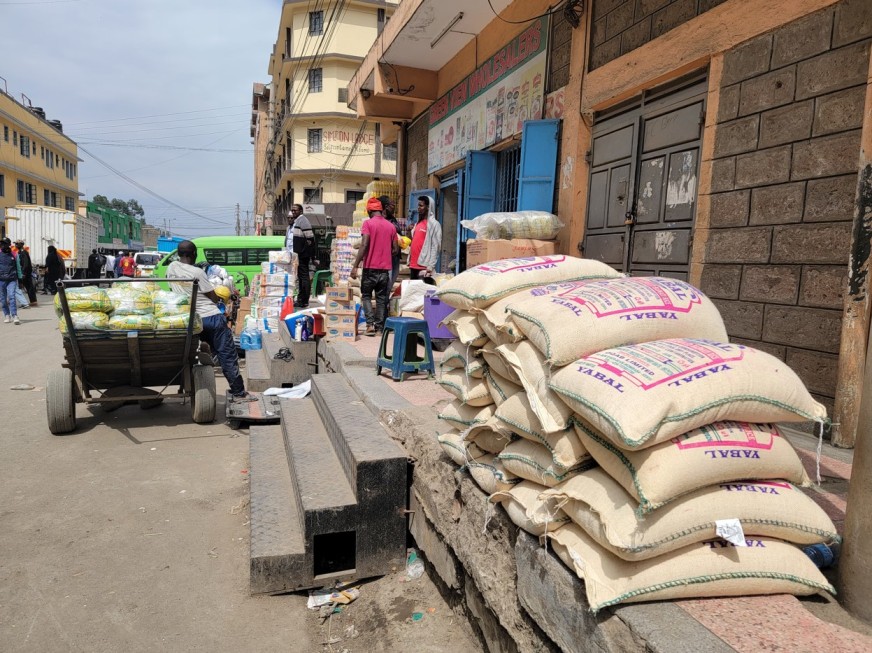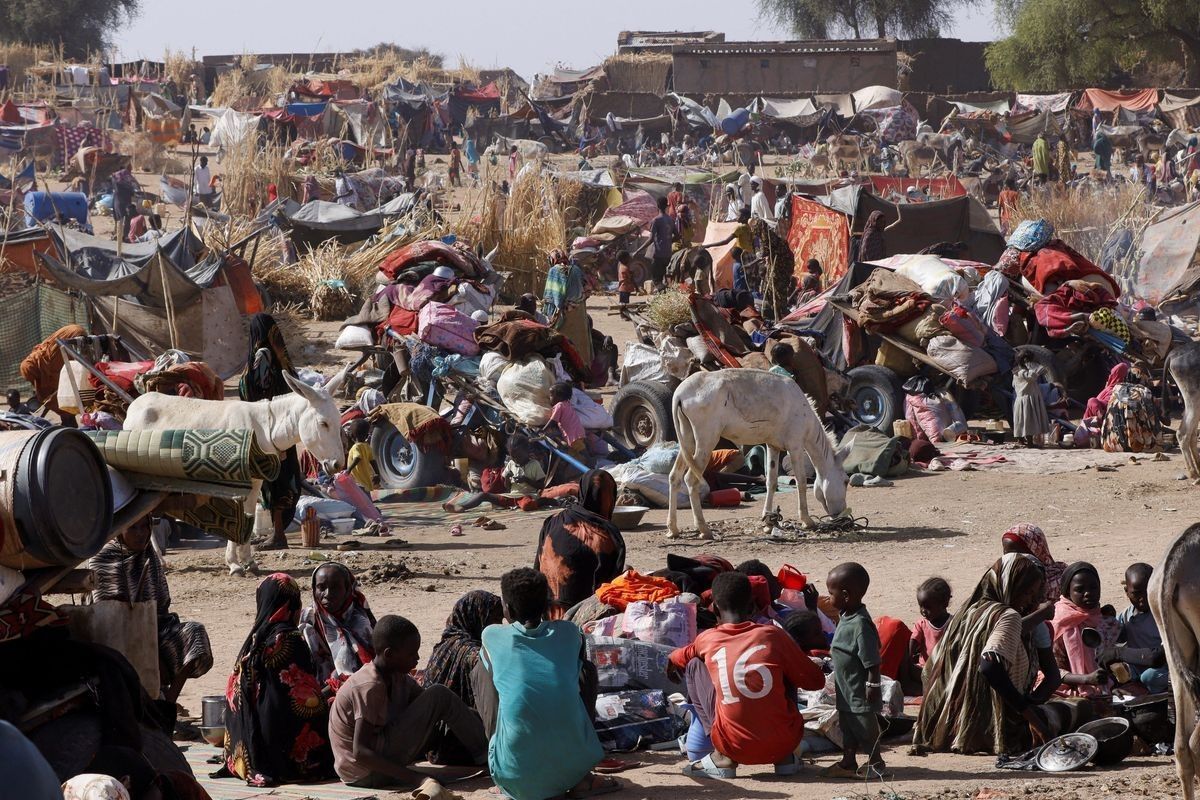Why Eastleigh’s wholesale shops are thriving amid high cost of living

KNBS says the price of commodities such as potatoes, beef, oranges, fare, monthly rent, and electricity prices increased in the last one month.
Like the holiday rush, the end of the month turns Eastleigh into a hive of activity, with wholesalers seeing brisk business as Nairobians from across the city flock to seal discounts for their monthly shopping.
Esther Nkatha is one of the many shoppers drawn to Eastleigh's bustling market at the end of the month.
More To Read
- Kenya's inflation climbs to 4.1 per cent amid fluctuating food prices, fuel costs
- Ten places where alcohol sale is prohobited in NACADA's new proposals
- UN warns of rising hunger across Africa
- Court hears how police surveillance systems tracked suspects in Ahmed Rashid murder case
- Residents demand action as borehole drilling company renders Yusuf Haji Avenue impassable
- Safaricom’s Ndoto Zetu initiative elevates maternal health in Kamukunji's Eastleigh with bed donation
We meet her across the street, carrying a large basket, and we are curious to find out what’s on her shopping list.
"I am a house help, and at the end of every month or whenever my employer runs low on supplies, she sends me to a specific shop to buy food items, detergents, and toiletries. I've been doing this for two years now," she explains.
She says that over this time, she has learnt which shops offer the best brands and the best bargains.
“Although they all sell at a discounted price, some will sell you something even at a slightly lower cost depending on how you bargain and if you are a regular customer,” she adds.
Just like Esther, many Nairobians and residents of neighbouring counties have developed a habit of shopping for house supplies in Eastleigh, where there are countless wholesale shops selling food items and other necessities needed for the day-to-day running of a home.
“If I can save sh100 per item compared to the price I pay at the supermarket, why not go to Eastleigh and save a few notes?” Poses Jane Mutisya, who feels that shopping in Eastleigh is akin to finding sale prices at regular supermarkets.
A spot check of various shops shows that commodity prices can differ from supermarket prices by as little as Sh5 to as much as Sh100. Shoppers who ask for a bargain may save even more.
Others, like Ben Otieno, who works in Eastleigh, now buy items for their parents at the trade centre and use courier services to send the packages to rural Nyanza.
“To send shopping and other reusable items home, shops and wholesale traders around have been my place to go because of favourable prices that are pocket-friendly. For example, a kilo of sugar costs Sh120 in Eastleigh, whereas other residential areas and town centres sell it for Sh170. The price difference is important because it helps one purchase multiple times and also save at the same time,” he says, adding that items that he would initially send home at an overall cost of Sh6,000 now cost him just Sh4,500.
 Wholesale shops along 14th Street in Eastleigh have continued to attract shoppers from various estates in Nairobi. (Photo: Ahmed Shafat)
Wholesale shops along 14th Street in Eastleigh have continued to attract shoppers from various estates in Nairobi. (Photo: Ahmed Shafat)Traders purchase items at wholesale shops along 14th Street in Eastleigh on September 3, 2024. (Photo: Ahmed Shafat)
Ahmed Hassan (not his real name) has been in the business for nearly a decade, having learnt the trade through apprenticeship.
His parents have been in business since he was a child, and now, at 21, he plays a key role in his family's shop, which supplies stockists both within and outside Nairobi.
“It is a business I have grown to love and immerse myself in. It is my sole source of livelihood,” he says.
Most of the stock sold in the shops consists of imports, arriving daily in containers.
The distance between the container depots and the wholesale shops is so small, hardly requiring much fuel to transport the goods needed for sale, a factor that adds to the final discounted price of the product.
Interestingly, the availability of goods at wholesale prices has not prompted locals to set up as many supermarkets as wholesale shops.
“The mentality around is that the supermarket prices are equally high, so people prefer the wholesale shops,” says Jane Mutua, a boiled egg hawker along Muratina Street.
The wholesale shops are likely to keep thriving as long as Kenyans continue to feel the impact of the high cost of living.
According to the Kenya National Bureau of Statistics, the overall year-on-year (annual) inflation rate as measured by the Consumer Price Index (CPI) was 4.4 per cent, in August 2024, a slight increase from an inflation rate of 4.3 per cent recorded in July 2024.
“The annual inflation was mainly due to an increase in prices of commodities,” the CPI for the month of August shows.
KNBS says the price of commodities such as potatoes, beef, oranges, fare, monthly rent, and electricity prices increased in the last one month.
Top Stories Today















































